Tag: tooth replacement uk
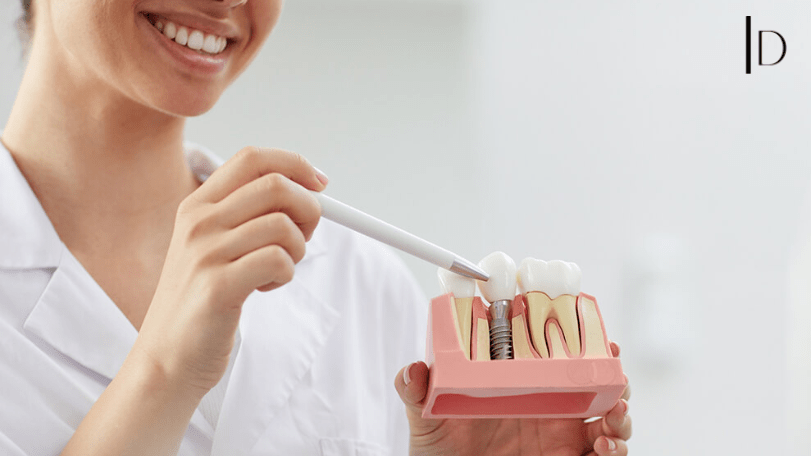
Understanding Loose Teeth Causes, Treatments, and Prevention
May 10, 2024Loose teeth can be a distressing experience for anyone, whether it’s a child losing their baby teeth or an adult facing the potential loss of permanent teeth. It’s essential to understand the causes behind loose teeth, the available treatments, and the preventive measures that can be taken to maintain optimal dental health. In this comprehensive guide, we’ll delve into the various factors contributing to loose teeth and explore effective strategies for addressing and preventing this common dental issue.
Causes of Loose Teeth:
- Periodontal Disease: One of the primary causes of loose teeth is periodontal disease, commonly known as gum disease. This condition occurs when bacteria build up in the gums, leading to inflammation and eventual damage to the tissues supporting the teeth. As the gums weaken, they can become loose and may eventually fall out if left untreated.
- Trauma or Injury: Accidents, sports injuries, or other types of trauma to the mouth can also result in teeth loosing. The impact from such incidents can damage the ligaments and tissues surrounding the teeth, causing them to become loose or dislodged.
- Poor Oral Hygiene: Inadequate oral hygiene practices, such as infrequent brushing and flossing, can contribute to the development of plaque and tartar buildup on the teeth. Over time, this can lead to gum disease and eventual tooth loss.
- Osteoporosis: Osteoporosis, a condition characterized by weakened bones, can also affect the jawbone. As the bone density decreases, the supporting structure for the teeth becomes compromised, increasing the risk of tooth mobility.
- Hormonal Changes: Hormonal fluctuations, such as those experienced during pregnancy or menopause, can impact gum health and increase the likelihood of developing loose teeth. This is due to changes in blood flow to the gums and increased susceptibility to gum disease.
Treatments for Loose Teeth:
- Professional Dental Care: If you notice that your teeth are becoming loose, it’s crucial to schedule an appointment with your dentist as soon as possible. Depending on the underlying cause, your dentist may recommend various treatment options, such as deep cleaning to remove plaque and tartar, periodontal therapy to treat gum disease, or splinting to stabilize loose teeth.
- Scaling and Root Planing: For individuals with gum disease, scaling and root planing may be necessary to remove bacteria and calculus from below the gum line and smooth the tooth roots. This can help promote gum reattachment and prevent further progression of periodontal disease.
- Tooth Splinting: In cases where teeth are broken, tooth splinting may be used to stabilize them. This involves bonding the loose tooth to neighboring teeth for support, allowing the gums and surrounding tissues to heal.
- Bone Grafting: If bone loss has occurred due to periodontal disease or other factors, bone grafting procedures may be recommended to regenerate lost bone tissue and strengthen the jawbone. This can provide a stable foundation for the teeth and prevent further tooth mobility.
Preventive Measures:
- Maintain Good Oral Hygiene: Practicing proper oral hygiene habits, such as brushing your teeth twice a day, flossing daily, and using mouthwash, is essential for preventing plaque buildup and gum disease.
- Visit Your Dentist Regularly: Regular dental check-ups and cleanings are essential for detecting any signs of gum disease or tooth mobility early on and addressing them before they progress.
- Avoid Tobacco Use: Smoking and chewing tobacco can contribute to gum disease and bone loss, increasing the risk of loose teeth. Quitting tobacco use can significantly improve oral health and reduce the likelihood of tooth mobility.
- Eat a Balanced Diet: A diet rich in fruits, vegetables, lean proteins, and calcium can support overall dental health and contribute to strong teeth and bones.
Conclusion:
Loose teeth can have various causes, including gum disease, trauma, poor oral hygiene, osteoporosis, and hormonal changes. However, with prompt professional care and preventive measures, it’s possible to address loose teeth effectively and maintain a healthy smile for years to come. By understanding the causes behind tooth lose and implementing proactive dental care strategies, you can safeguard your oral health and preserve your teeth for a lifetime. Remember, early intervention is key to preventing further damage and achieving optimal dental outcomes.
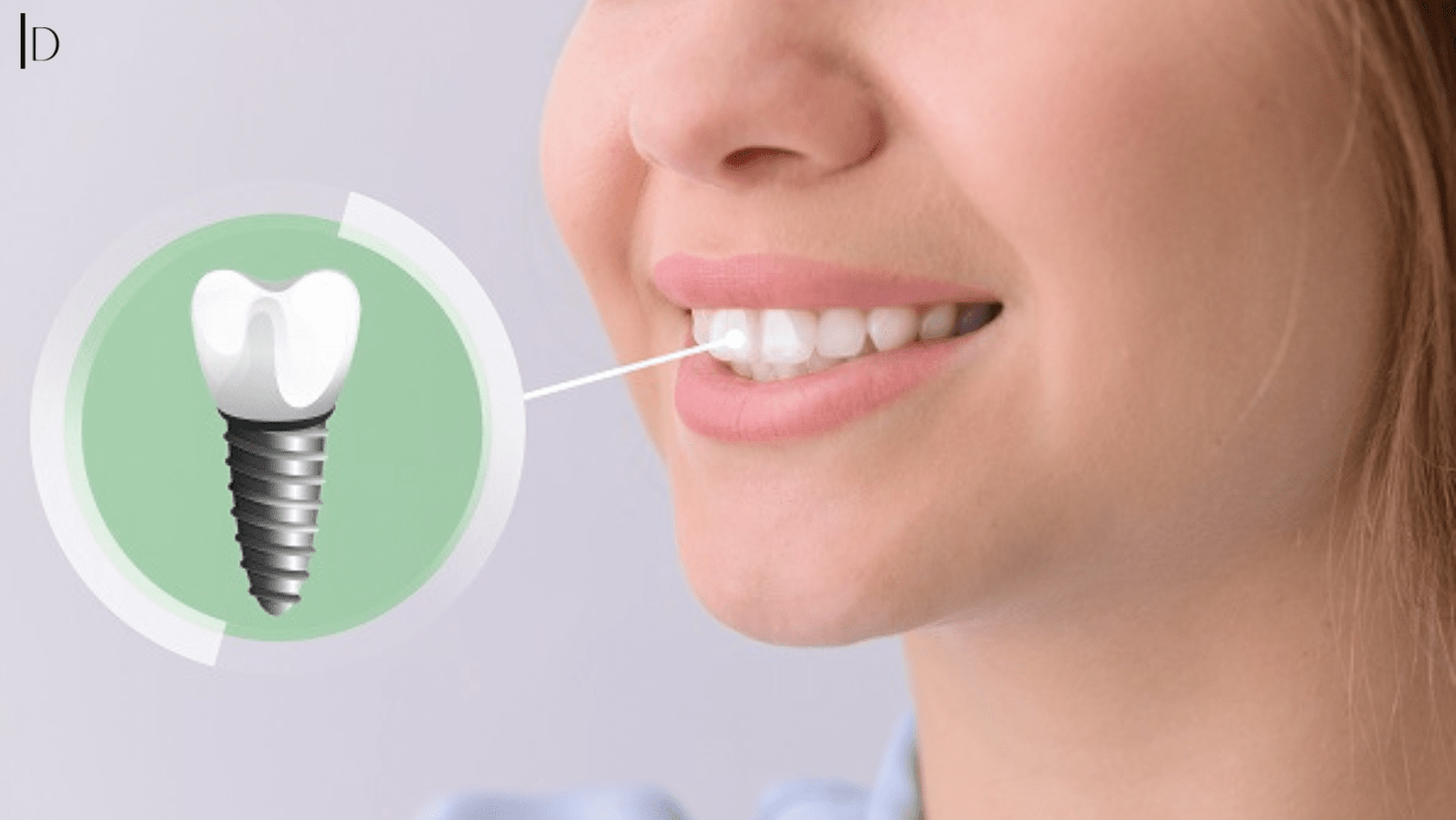
The Latest Advances in Tooth Implants: UK Perspectives
March 21, 2024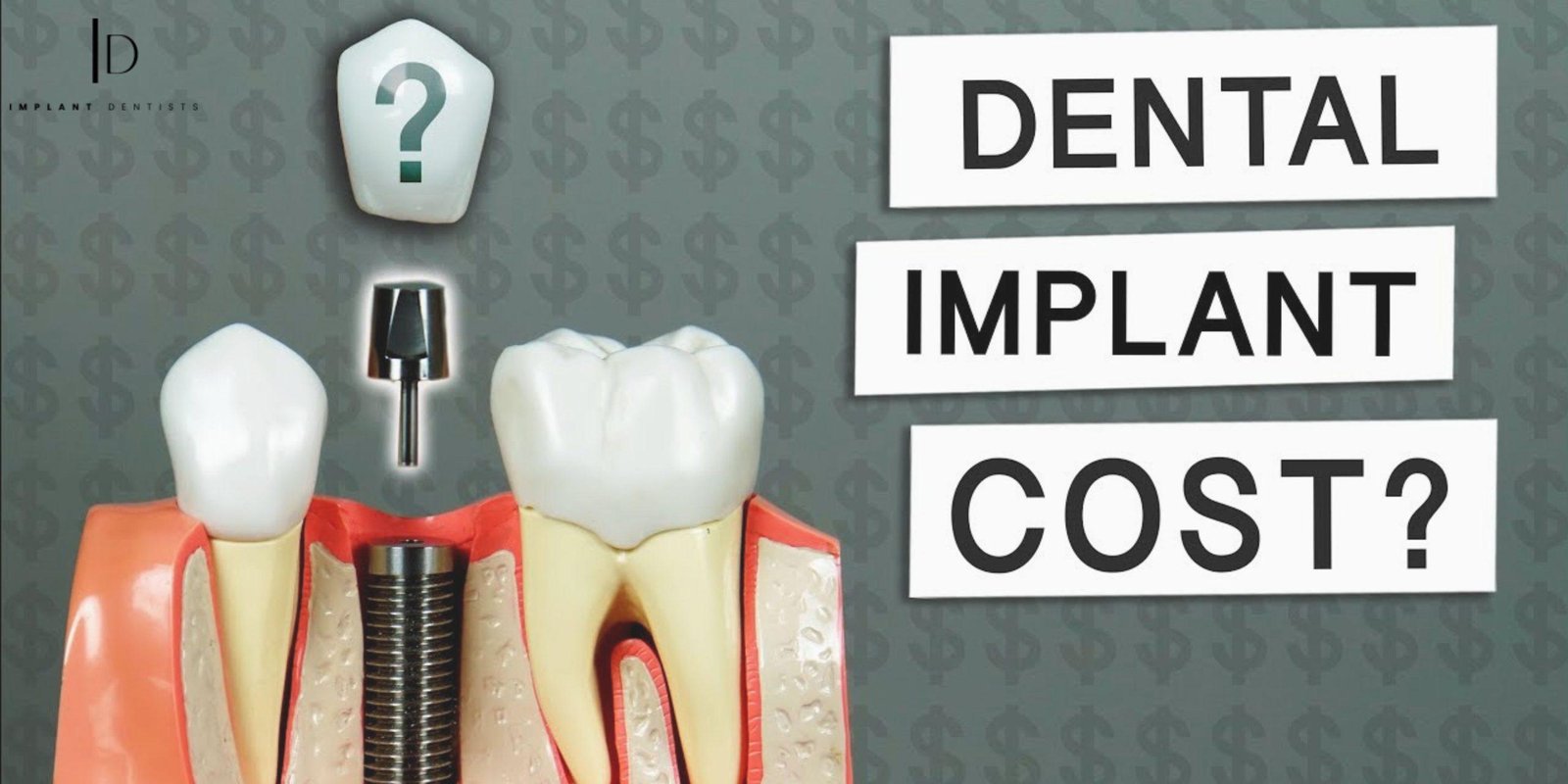
What Factors Influence the Cost of Dental Implants?
March 13, 2024Dreaming of a flawless smile with permanent replacements for missing teeth? Dental implants are a fantastic option, offering both aesthetics and functionality. But before you embark on this exciting journey, understanding the cost factors involved is crucial.
While there’s no single price tag, several key elements significantly influence the final bill. Let’s delve deeper into the main ones:
1. Number and Location of Implants
This plays a major role. Replacing a single tooth is naturally less expensive than a full arch of implants. Additionally, front teeth often require more sophisticated implants due to their high visibility. These factors contribute to a higher price tag for implants in these areas. Additionally, the location of the missing teeth within the mouth can influence the pricing. For instance, front teeth, which are more visible when smiling, talking, or eating, often require more sophisticated implants to achieve optimal aesthetics. These implants may need to be customized in shape, size, and color to seamlessly blend with the natural teeth surrounding them.
2. Complexity of the Procedure
Not all implant placements are created equal. Simple, straightforward cases will have a lower cost compared to situations requiring additional procedures. Bone grafting, for example, might be necessary to strengthen the jawbone before implant insertion. This adds to the overall treatment complexity and cost. Bone grafting involves transplanting bone tissue from elsewhere in the body or using synthetic materials to augment the jawbone. This additional step not only increases the complexity of the treatment but also incurs extra costs for the materials, surgical procedures, and extended recovery time.
3. Material Selection
Both the implant post itself and the restoration (crown, bridge, etc.) come in varying material options. Premium materials known for their durability and aesthetics typically cost more. Discuss these options with your dentist to find the best balance between cost and your desired outcome. However, patients may also have the option of choosing zirconia implants, which are known for their natural appearance and compatibility with those who have metal sensitivities. While titanium implants tend to be more cost-effective, zirconia implants often come with a higher price tag due to their advanced manufacturing process and aesthetic qualities.
4. Geographic Location
Dental costs, like many other services, can vary depending on your location. Urban areas with a higher cost of living often have pricier dental procedures compared to rural areas. In urban centers, where overhead costs such as rent, utilities, and staff salaries are typically higher, dental practices may need to adjust their pricing to cover these expenses. Additionally, urban areas tend to have a higher concentration of specialized dental professionals and state-of-the-art facilities, which can also contribute to higher costs.
5. Dentist’s Expertise and Experience
A skilled and experienced dentist with a proven track record in implant dentistry may command a higher fee. However, their expertise can ensure a smooth procedure, successful long-term results, and potentially save you money by avoiding complications down the line. Dentists who specialize in implant dentistry have undergone extensive training and accumulated years of experience in performing implant procedures. They possess a deep understanding of the complexities involved in dental implant placement, including assessing bone density, determining optimal implant placement, and ensuring proper integration with surrounding tissues.
Managing the Cost of Dental Implants
While the initial investment in dental implants can seem significant, consider it a long-term solution for a healthy, beautiful smile. Here are some tips to manage the cost:
- Consult with your dentist: Discuss your specific needs and get a personalized cost estimate. Every patient’s dental implant journey is unique, and your individual needs will play a significant role in determining the overall cost of treatment. During your initial consultation with your dentist or oral surgeon, you’ll have the opportunity to discuss your dental health goals, concerns, and any specific preferences you may have regarding the type of implants or treatment options.
- Explore insurance coverage: While coverage for implants varies, some dental plans may offer partial reimbursement. This is because dental insurance plans often categorize dental implants as a cosmetic or elective treatment rather than a medically necessary procedure. However, some dental insurance plans may offer partial reimbursement or coverage for certain aspects of the dental implant treatment, such as the initial consultation, diagnostic imaging, or any necessary adjunctive procedures like bone grafting
- Financing options: Many dental practices offer flexible payment plans to make this investment more manageable. They often provide flexible payment plans. These payment plans allow patients to spread out the cost of treatment over time, breaking it down into smaller, more affordable monthly installments. Flexible payment plans typically involve arranging a payment schedule with the dental practice, allowing patients to pay for their dental implants gradually rather than in one lump sum.
Conclusion
Remember, a healthy discussion with your dentist is key to navigating the cost of dental implants. They can provide a clear picture of the factors at play and help you find a solution that fits your budget and smile goals. Your dentist will conduct a comprehensive evaluation of your oral health, including the number of teeth to be replaced, the condition of your jawbone, and any additional procedures that may be necessary. They will take the time to explain the different types of dental implants available, along with their respective costs and benefits.
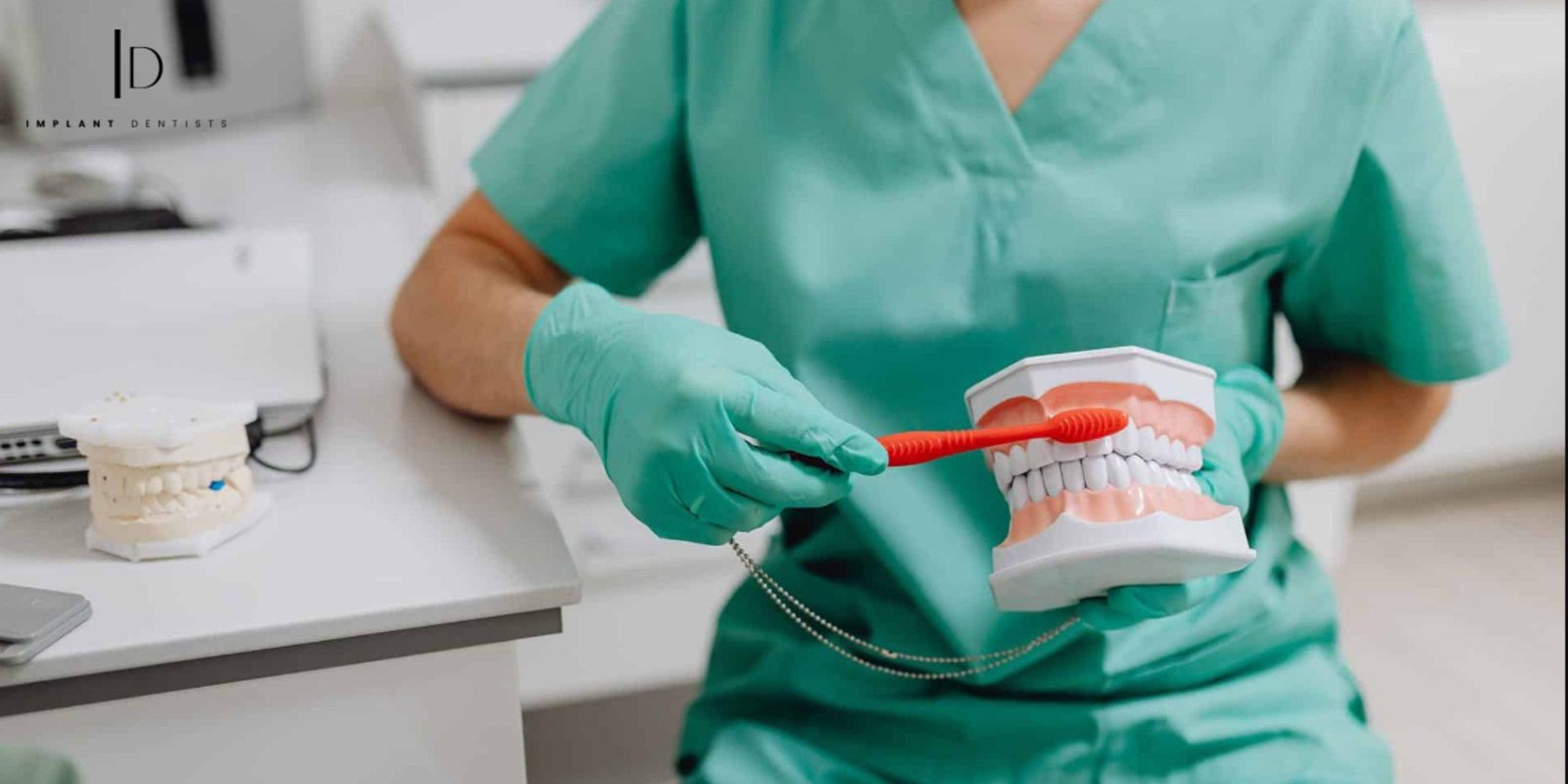
Affordable Dental Implants | Finding Cheap Solutions for Fixed Teeth in the UK
March 11, 2024When addressing the issue of missing teeth, the evolution of dental technology has introduced a diverse array of replacement options. Among which fixed teeth solutions, specially the groundbreaking all the four implants, stand out. This innovative affordable dental implant procedure has revolutionized the field of tooth replacement, offering people’s in the United Kingdom an exceptional alternative through proficient affordable dental implant, particularly those practicing in Crewe.
Understanding Teeth Replacement
Replacing missing teeth is a vital aspect of modern dentistry, allowing people’s to restore oral functionality and regain confidence in their smiles. In the United Kingdom, specifically in Crewe, expert the implant dentists offer advanced solutions for tooth replacement, ensuring patients receive top-tier care and advanced implantology techniques.
- Traditional Dental Implants: Dental implants are titanium posts surgically inserted into the jawbone, serving as sturdy foundations for attaching replacement teeth. This method ensures stability and durability comparable to natural teeth.
- Fixed Teeth Solutions: Fixed teeth involve implant-supported prosthetics permanently affixed in the mouth, providing a secure and functional tooth replacement option.
Benefits of Teeth Replacement
- Restored Functionality: Replacing missing teeth restores the ability to chew food properly, improving digestion and overall nutrition. This enhances oral functionality, allowing for comfortable eating and speaking.
- Protecting of Jawbone Density: When teeth are missing, the jawbone can start to deteriorate due to lack of stimulation. Dental implants and other replacement options stimulate the jawbone, preserving its density and preventing bone loss.
- Prevention of Teeth Shifting: Gaps left by missing teeth can cause adjacent teeth to shift or become deranged over time. Tooth replacement prevents this shifting, maintaining the proper alignment of remaining teeth.
- Improved Oral Health: Filling the gaps left by missing teeth prevents food particles and bacteria from store in those spaces, reducing the risk of gum disease, decay, and further tooth loss.
Exploring All of Four Implant
In the United Kingdom, implant dentists in Crewe, specializing in all four implant, offer expert care and clarity in this advanced dental procedure. These dental professionals in Crewe possess extensive experience and specialized training in planetology, ensuring patients receive quality treatment and personalized care. This innovative technique involves securing a full set of teeth onto just four strategically positioned implants per dental arch. Its efficiency and reduced invasiveness make it a popular and cost-effective alternative to conventional implant procedures.
Benefits All of Four Implant
- Immediate Functionality: All the four implant allow for the attachment of a full set of teeth to just four strategically placed implants per dental arch. This often enables immediate loading, providing patients with functional teeth shortly after the procedure.
- Cost-Effective Option: All the four implant can be a cost-effective solution for full-arch restoration. The procedure utilizes fewer implants and can often avoid the need for additional bone grafting surgeries, reducing overall treatment expenses.
- Improved Stability: The strategic placement of implants in all of four implant provides stability and support for the prosthetic teeth. This stability enhances chewing and speaking abilities, offering a more comfortable and functional dental experience.
Cheap Dental Implants in the UK
For people’s in the United Kingdom seeking budget-friendly yet high-quality dental implants, several options exist to access cheap dental care. Among these choices, implant dentists in Crewe, UK, stand out for their expertise in providing cost-effective dental implant solutions. In the UK, cheap dental implants are accessible through various clinics and specialized practices. The Implant dentists, offer quality dental implant treatments at competitive prices, ensuring that cost doesn’t compromise the quality of care.
Implant Dentists in Crewe
Implant dentists in Crewe, UK, are highly skilled professionals specializing in providing advanced dental implant treatments and solutions. Renowned for their expertise and commitment to excellence, these practitioners play a pivotal role in restoring smiles and improving oral health for individuals seeking tooth replacement options.
- Expertise and Specialization: Affordable dental implant, Crewe possess extensive expertise in advanced dental implant techniques. Their specialization ensures patients receive top-tier care and precision in implant-related procedures.
- Personalized Consultation: These professionals conduct thorough assessments and create personalized treatment plans tailored to individual patients. This take into account their unique needs, preferences, and budget constraints.
Benefits of Dental Implants:
- Enhanced Functionality: Implants function just like natural teeth, allowing persons to chew, bite, and speak comfortably without restrictions. This restoration of natural dental function improves overall quality of life.
- Improved Aesthetics: Dental implants closely resemble natural teeth, providing a seamless and aesthetically pleasing appearance. They blend harmoniously with the surrounding teeth, restoring a confident smile.
- Restored Functionality: Dental implants facilitate comfortable biting, chewing, and speaking, closely mimicking natural teeth.
- Boosted Confidence: Restoring a complete smile with dental implants often leads to increased self-confidence. A better self-image, positively impacting social interactions and overall well-being.
- Enhanced Aesthetics: They offer a natural-looking solution for missing teeth, enhancing smiles and restoring confidence.
- Enhanced Oral Health: Implants do not require alterations to nearby teeth, unlike dental bridges. This preservation of natural teeth promotes better oral health in the long run.
Conclusion:
Tooth replacement options, especially fixed teeth solutions like all of four implants, present viable alternatives for individuals seeking durable and reasonably priced dental treatments in the UK. This allows dental implant procedures accessible and tailored to the specific needs of each patient. Through these innovative solutions, people’s can regain their smiles and enjoy improved oral health and functionality.
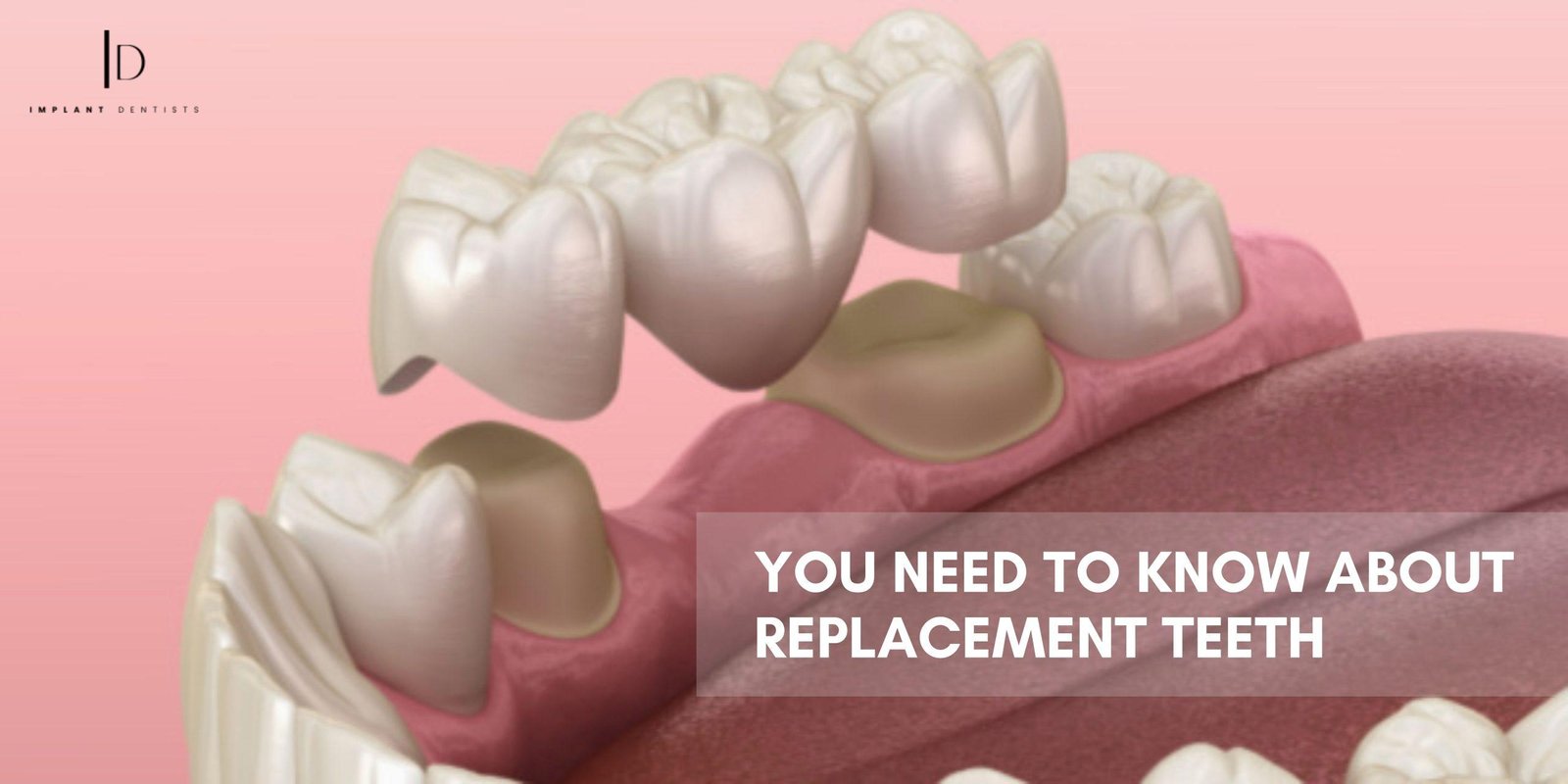
Restoring Your Smile | Everything You Need to Know About Replacement Teeth
February 21, 2024Losing a tooth can be a big deal. It affects not only your appearance but also your ability to eat, speak, and even your self-confidence. Thankfully, modern dentistry offers a variety of options to replace missing teeth and restore your smile to its former glory. Now, we’ll explore the different types of replacement teeth, their pros, and factors to consider when making your decision.
Filling the Gap: Common Types of Replacement Teeth
-
Dental Implants: Considered the gold standard, implants mimic natural teeth the most closely. A small titanium post is surgically placed in your jawbone, acting as an anchor for a crown. Implants are durable, aesthetically pleasing, and function like natural teeth. However, they’re also the most expensive option and require surgery.
-
Dental Bridges: Bridges are fixed restorations that “bridge” the gap left by missing teeth. They consist of artificial teeth attached to crowns cemented onto adjacent healthy teeth. Bridges are strong and natural-looking, but they require preparation of healthy teeth, which may not be ideal for everyone.
-
Dentures: These are removable prosthetics that replace multiple missing teeth. Full dentures cover all teeth in an arch, while partial dentures only fill in specific gaps. Dentures are generally more affordable than implants or bridges, but they may not fit perfectly and can impact speech and eating.
-
Partial Dentures with Implants: Combining implants with dentures offers the best of both worlds. Implants provide stability and prevent bone loss, while the denture fills in the gaps. This option is more expensive than regular dentures but offers superior comfort and function.
Choosing the Right Option: Factors to Consider
- Number of missing teeth: Implants are best for single teeth or multiple spaced apart. Bridges work well for a few consecutive missing teeth. Dentures are suitable for replacing all or most teeth.
- Jawbone health: Implants require sufficient bone mass for placement. Dentures might require bone grafting if bone loss is significant.
- Budget: Implants are the most expensive, followed by bridges, then dentures. Partial dentures with implants are more costly than regular dentures.
- Lifestyle and preferences: Consider your comfort level with removable options, the importance of aesthetics, and your maintenance needs.
5 Pros of Replacing Missing Teeth: Reclaim Your Smile and More!
Losing a tooth isn’t just an aesthetic concern; it impacts your physical and social well-being. Thankfully, modern dentistry offers various solutions to fill the gap and restore your smile’s glory. Beyond regaining that confident grin, here are 5 compelling benefits of replacing missing teeth:
- Eat Like a Champ: Imagine relishing a juicy steak or crunchy apple without struggling. Replacement teeth, especially implants and bridges, mimic natural teeth, allowing you to chew efficiently and enjoy a wider range of delicious foods. Say goodbye to soft diets and rediscover the joy of culinary adventures!
- Speak Clearly and Confidently: Missing teeth can slur your speech, causing self-consciousness and affecting communication. Replacements like dentures or implants improve pronunciation and enunciation, letting you express yourself clearly and confidently in every conversation. Speak your mind without hesitation!
- Boost Your Confidence: A complete smile radiates self-assurance. Replacing missing teeth can drastically improve your self-esteem, empowering you to smile brightly and engage in social interactions without holding back. Let your smile reflect your inner self!
- Protect Your Oral Health: Gaps left by missing teeth create spaces for food debris and bacteria, inviting gum disease and bone loss. Replacements prevent these issues, maintaining the health of your remaining teeth and jawbone. Invest in a healthy smile for the long term!
- Maintain Facial Structure: Missing teeth can cause facial muscles to sag, leading to premature aging and a sunken appearance. Replacements fill the gap, supporting facial tissues and preserving a youthful, healthy look. Age gracefully, not visibly!
Beyond the Basics: Additional Tips
- Consult a dentist: Discussing your individual needs and preferences with a qualified dentist is crucial for choosing the best option.
- Consider long-term implications: While cost might be an initial factor, consider the lifespan and maintenance costs of each option.
- Prioritize oral health: Regular dental checkups and proper oral hygiene are essential for maintaining any type of replacement teeth.
Replacing a missing tooth is a personal decision. By understanding the different options and carefully considering your individual needs, you can restore your smile with confidence and enjoy the benefits of a complete and healthy set of teeth.
Conclusion
Losing a tooth can feel like a loss of confidence and freedom. But fret not! Modern dentistry offers a range of replacement options, each with its own strengths and considerations. This blog served as a compass, guiding you through the different types of replacement teeth, implants, bridges, dentures, and their exciting hybrid – providing an overview of their pros, cons, and suitability based on your unique needs.
Remember, the choice for a replacement tooth is personal. By considering your budget, jawbone health, lifestyle, and aesthetic preferences, you can pave the way for an informed decision alongside your trusted dentist. Don’t let a missing tooth dim your smile – with the right approach, you can reclaim your confidence and rediscover the joy of a complete and healthy set of teeth. So, step out boldly, with a smile that shines brighter than ever!
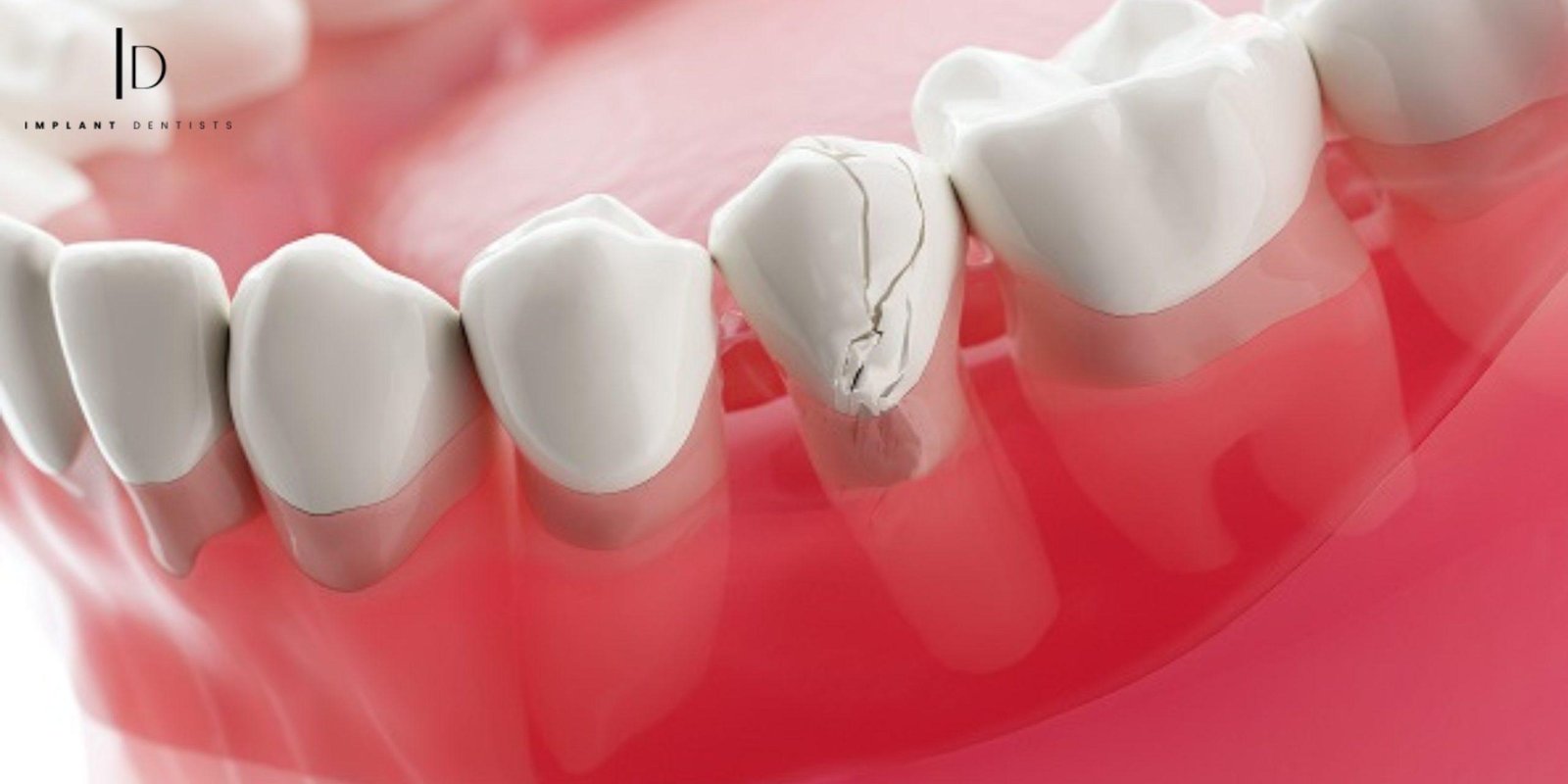
The Complete Guide to Repairing Broken Teeth| Causes, Types, and Treatment Options
February 16, 2024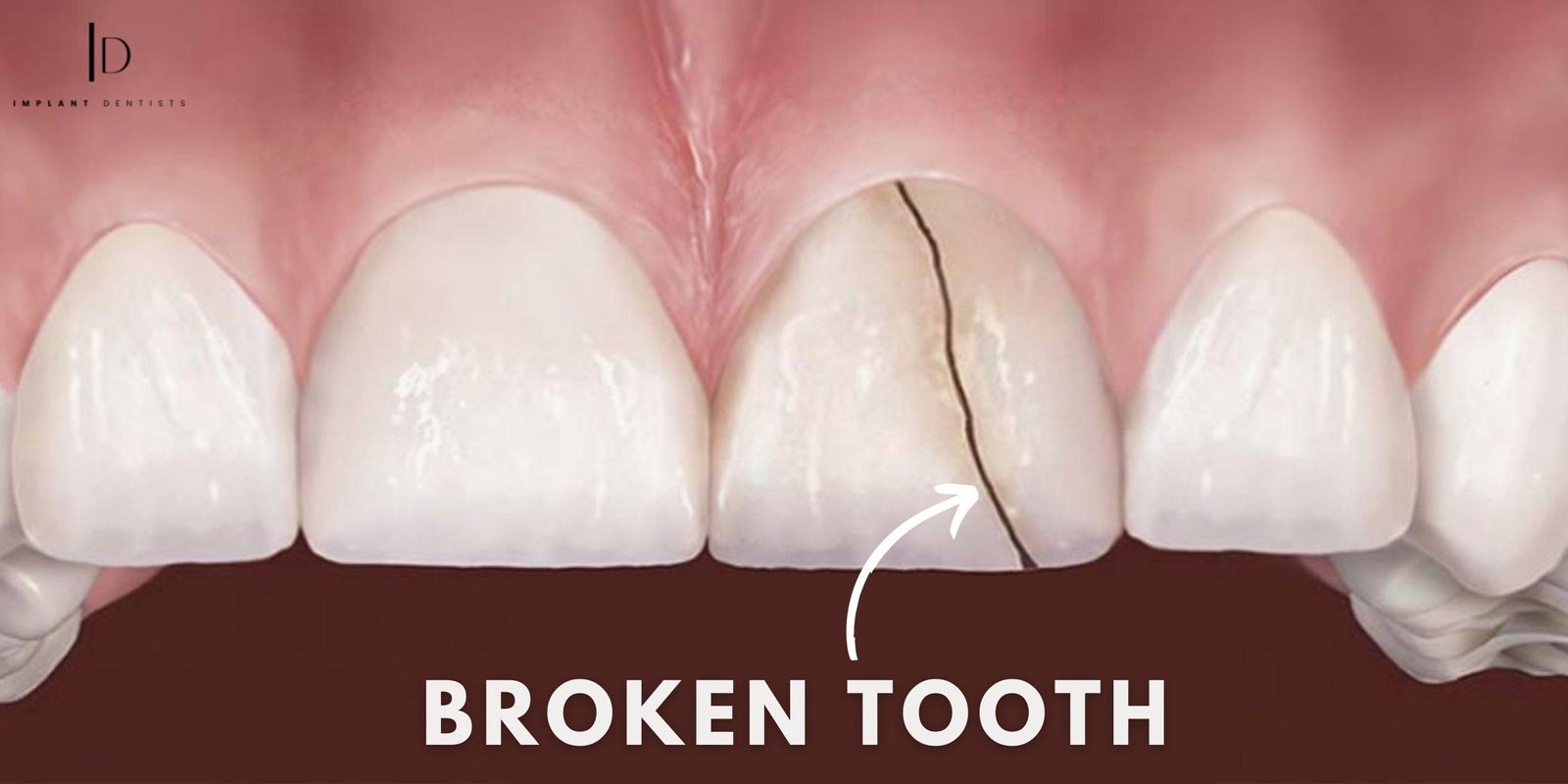
Saving Smiles| Exploring 5 Causes, Treatments & Benefits for Broken Tooth
February 5, 2024A broken tooth can be a worry and painful experience, affecting not just your oral health, but also your confidence in showcasing your smile. Fortunately, advancements in dental care have paved the way for effective broken tooth repair options. Broken tooth repair is a dental procedure designed to restore and renew a damaged or fractured tooth. It brings back functionality to the patient’s smile. Whether the result of an accident, injury, or decay, a broken tooth can cause discomfort, compromise oral health, and impact one’s confidence. Now, we’ll explore the causes of a broken tooth, available treatments, and the benefits of seeking prompt repair.
Causes of Broken Tooth
- Trauma or Injury: Accidents, falls, or sports related injuries can cause direct impact to the mouth, leading to a broken tooth. This can happen during activities like playing sports, falling, or any other situation where the mouth experiences forceful contact.
- Biting on Hard Objects: Chewing on hard substances such as ice, unpopped popcorn kernels, or non food items can lead to tooth breakage. The excessive force applied while biting down on hard objects can cause teeth to fracture or chip.
- Untreated Tooth Decay: Prolonged tooth decay weakens the structure of the tooth, making it more susceptible to breakage. When cavities are left untreated, they can progress and compromise the unity of the tooth, eventually causing it to break.
- Bruxism (Teeth Grinding): Regular teeth grinding, known as bruxism, can apply significant pressure on the teeth, leading to wear and tear. Over time, this constant grinding can weaken the coating and result in fractures or breaks in the teeth.
- Large Fillings or Weak Tooth Structure: Teeth with large fillings or those that have undergone extensive dental work may be more prone to breakage. The presence of a large filling can compromise the structural integrity of the tooth. If the filling is old or poorly done, the tooth becomes more susceptible to fractures.
Five Potential Treatments for a Broken Tooth
- Dental Bonding: Dental bonding is a common treatment for minor tooth fractures. It is often used for fractures caused by trauma or biting on hard objects. In this procedure, a tooth coloured resin is applied to the damaged tooth and then shaped and polished to restore its appearance and function.
- Fillings: If the broken tooth is a result of untreated tooth decay, a dental filling may be used to repair the damage. The decayed portion of the tooth is removed. A filling material is used to fill the cavity and restore the tooth’s structure.
- Dental Crowns: For more extensive tooth damage, such as a large fracture or a weakened tooth structure, a dental crown may be recommended. A dental crown is a custom made cap that covers the entire tooth, providing strength, protection, and restoring its appearance.
- Night Guards for Bruxism: If teeth grinding is the cause of the broken tooth, a dentist may recommend the use of a custom fitted night guard. This oral device is worn while sleeping to cushion the impact of grinding. It prevents further damage to the teeth.
- Root Canal Treatment: In cases where a broken tooth extends into the pulp, a root canal may be necessary. This involves removing the damaged pulp, cleaning and disinfecting the root canal, and then sealing it to prevent infection. After a root canal, a crown is often placed to strengthen and protect the tooth.
Benefits about Broken Tooth Treatment
- Improved Oral Health: Seeking timely broken tooth repair not only relieves pain but also contributes to overall oral health. Addressing fractures prevents the risk of infections and decay that may arise from exposed tooth pulp.
- Enhanced Aesthetics: Dental repairs, such as bonding, crowns, or veneers, go beyond functional benefits. They restore the natural appearance of the tooth. This boosts your confidence and allows you to smile freely without concerns about visible damage.
- Long-term Cost Savings: Investing in broken tooth repair can save you money in the long run. Addressing the issue promptly helps prevent further complications that may require more extensive and expensive dental procedures in the future.
- Restored Functionality: Repairing a broken tooth ensures that you can comfortably chew and eat without discomfort. This restoration of functionality is essential for proper digestion and overall well-being.
- Preservation of Natural Teeth: Certain treatments, like dental bonding and crowns, aim to preserve the natural structure of the tooth. This is advantageous compared to extraction, as it helps maintain the integrity of your natural teeth for as long as possible.
- Boosted Confidence: A healthy, well-maintained smile can significantly impact your self-esteem. By addressing a broken tooth promptly, you improve the physical aspects of your smile. You enhance your mental well-being by feeling more confident and comfortable in social situations. Address a broken tooth promptly to maintain this feeling.
- Customized Solutions: Dental professionals offer a range of repair options tailored to your specific needs. Whether it’s a minor chip or a more extensive fracture, there are personalized solutions that cater to the severity of the damage, ensuring optimal results.
Conclusion
In the journey to broken tooth repair, recognizing the causes is key. Understanding the signs and embracing the available treatment options are also important. Whether your tooth has suffered a minor chip or requires a more extensive restoration, the benefits of timely repair extend beyond pain relief. By promptly addressing a broken tooth, you not only alleviate discomfort but also prevent further damage, ensuring the longevity of your oral health. The array of treatment options, from dental bonding to implants, allows for personalized solutions tailored to your unique situation. Our dedicated dental care team is committed to delivering personalized and effective treatment for broken teeth. They help you regain confidence in your oral health with compassionate care.
